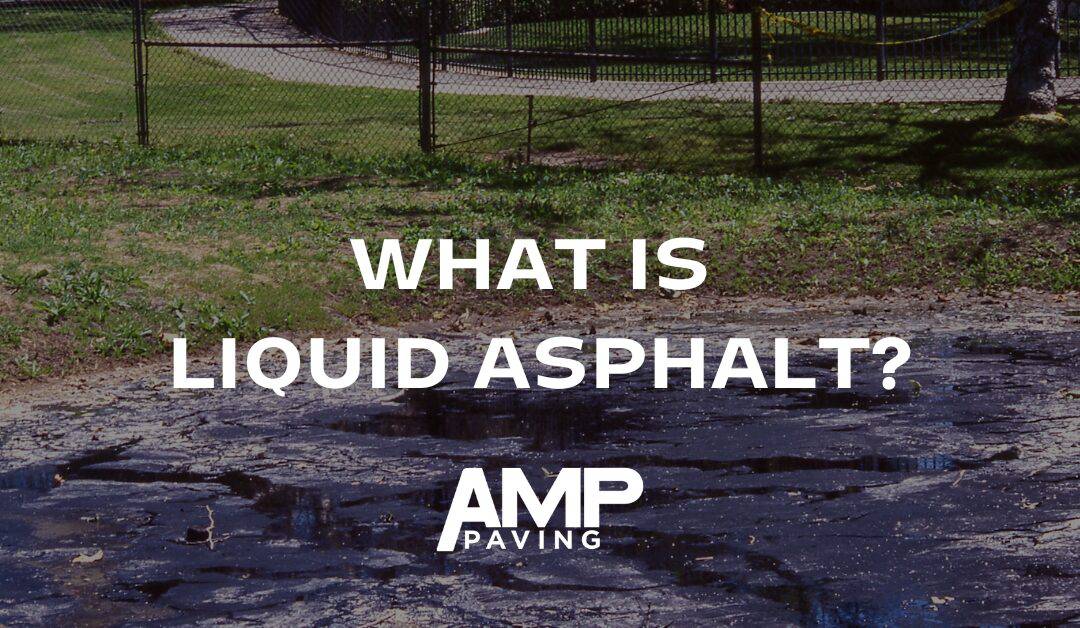When you hear “liquid asphalt,” you might picture the roads we drive on every day, but there’s more to it than meets the eye. Liquid asphalt is a versatile petroleum product essential for building and maintaining highways, driveways, and parking lots.
It starts out as a sticky, black material refined from crude oil or found naturally in certain deposits. To make it usable, it’s heated or blended with other substances. The transformation makes it suitable for paving, sealing, and keeping road surfaces durable year-round.
Is Liquid Asphalt a Petroleum Binder? How Does It Work? What Is It Used For?
Yes, liquid asphalt serves as a petroleum binder, a form of asphalt that bonds with aggregate materials to create durable surfaces. It’s essentially a refined version of the heaviest part of crude oil, with many practical applications.
Understanding Asphalt as a Binder
Liquid asphalt, also called asphalt cement, begins as a thick, semi-solid material extracted from crude oil or natural bitumen deposits. The refining process transforms it into a liquid form, making it useful as an asphalt binder for paving.

You’ll find it in products like asphalt concrete, where it plays a crucial role in holding the material together, creating a sturdy surface for roads, streets, and parking lots.
The Role of Refining and Heating
To make asphalt workable, we need to heat it or refine it with solvents. Heating brings the semi-solid asphalt to a liquid state while adding light petroleum solvents creates cutback asphalt.
Special refineries handle the intricate processing that produces a refined product suitable for various uses. For projects involving a business property or private homeowner, liquid asphalt is mixed and applied while hot, binding well to materials like sand and gravel.
Get started on your paving project with AMP Paving. Call us at 803-237-4563 to discuss your needs and receive a FREE quote!

The Importance of Grading Systems
The modern material’s effectiveness depends on grading, such as the PG grading system and viscosity grading.
These measures evaluate the asphalt’s physical properties, ensuring it meets the standards for pavement performance under different conditions.
A road’s service life hinges on selecting the right type of binder for its environment.
Uses Beyond Roads
While road paving is a common application, liquid asphalt has other uses, too. It can be part of sealing processes for driveways and maintenance treatments.
Its versatility and durable nature make it a go-to material for various construction and maintenance needs.
Is Liquid Asphalt the Same as Hot Mix Asphalt Cement?
While both liquid asphalt and hot mix asphalt cement play key roles in road construction, they aren’t quite the same. Understanding their differences helps you appreciate the materials used in modern paving.
What Is Liquid Asphalt?
Liquid asphalt, often called asphalt binder, originates from petroleum crude oil or natural deposits. It appears in a semi-solid form. Heating or refining it turns it into a liquid. One such place where natural liquid asphalt seeps from the ground is the historic site, the La Brea Tar Pits.

Asphalt cement plants create this refined asphalt, which binds materials like gravel and sand. The finished product can be used in various applications thanks to its asphalt binding properties.
How Does Hot Mix Asphalt Cement Differ?
Hot mix asphalt cement combines liquid asphalt with aggregates at high temperatures. The mixture ensures thorough coating and bonding of the materials, resulting in a durable surface.
Unlike liquid asphalt alone, hot mix asphalt goes through additional processes to reach a state suitable for heavy-duty pavement use.
The Role of Heat and Refining
Heat is crucial for both materials.
- For liquid asphalt, heat transforms it from a semi-solid form to a workable state.
- With hot mix asphalt cement, heat ensures that the aggregates and liquid asphalt blend properly.
The refined product must meet certain standards, often graded using systems like the PG system, to ensure optimal performance.

Applications in the Modern World
Both types of asphalt are essential, whether we’re talking about constructing new roads or resurfacing existing pavements.
Understanding their differences and uses allows us to select the right materials for specific projects, ensuring long-lasting surfaces for all kinds of traffic.
AMP Paving: Top Asphalt Paving Contractors in Columbia, SC
At AMP Paving, we know that quality matters. Our expertise in asphalt paving allows us to deliver durable, smooth surfaces for every project. Whether you’re looking for residential, commercial, or industrial paving, we’re here to provide tailored solutions.
Residential, Commercial, and Industrial Paving Solutions
We understand that every project is different. Our services include driveway installations, parking lot paving, and industrial area surfacing. We focus on meeting your unique needs and exceeding your expectations.

The AMP Paving Difference: Quality and Commitment
We use top-grade materials and trusted methods to ensure long-lasting results. From thorough site preparation to final touches, our skilled team handles all aspects to deliver a seamless pavement experience.
Contact Us Today for a Free Estimate
Get started on your paving project with AMP Paving. Call us at 803-237-4563 to discuss your needs and receive a FREE quote!

